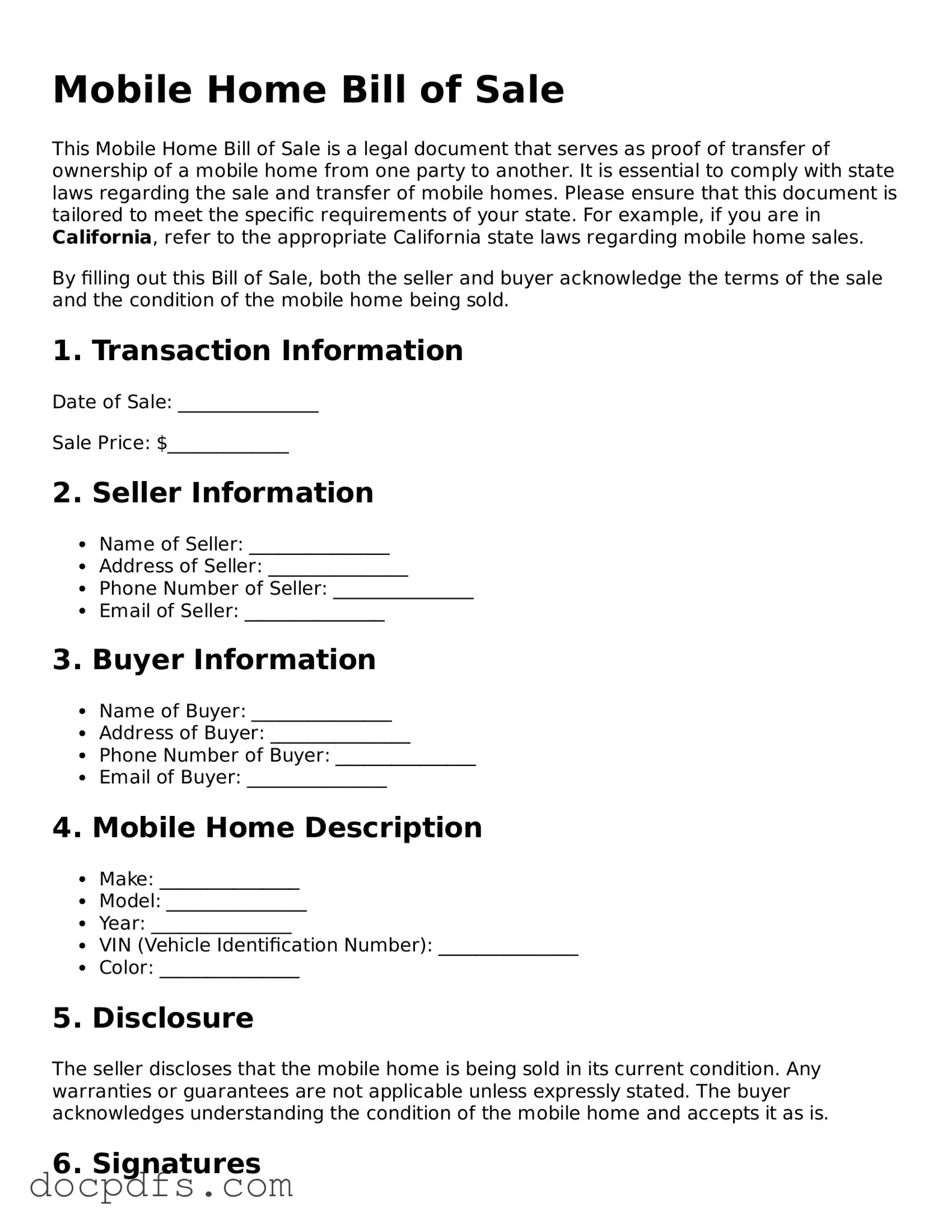Legal Mobile Home Bill of Sale Document
The Mobile Home Bill of Sale form is a legal document that facilitates the transfer of ownership of a mobile home from one party to another. This form outlines essential details such as the buyer and seller's information, the mobile home's identification, and the sale price. Properly completing this document is crucial for ensuring a smooth transaction and protecting the rights of both parties involved.
Open Mobile Home Bill of Sale Editor Now

Legal Mobile Home Bill of Sale Document
Open Mobile Home Bill of Sale Editor Now

Open Mobile Home Bill of Sale Editor Now
or
⇓ Mobile Home Bill of Sale
Finish this form the fast way
Complete Mobile Home Bill of Sale online with a smooth editing experience.